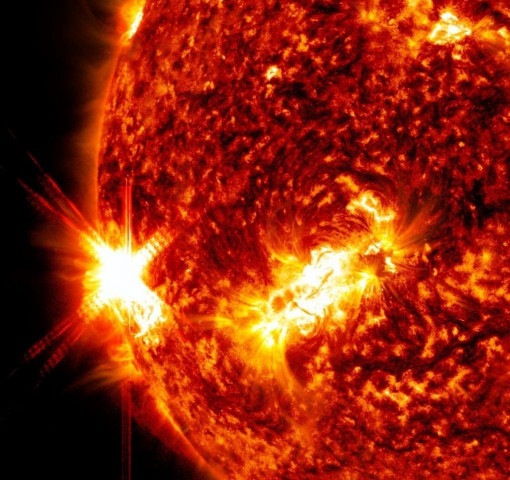NASA spacecraft captures images of solar storm eruption
NASA's Parker Solar Probe captures remarkable images of a solar storm giving insight on how CMEs interact

A NASA spacecraft captured remarkable images of a solar storm eruption as it was flying by the sun. The pictures captured depict the fiery ejection “vacuuming up” space dust left over from the formation of the solar system.
NASA’s Parker Solar Probe captured the images on September 5, and NASA shared the images with the public on Monday. The probe was lucky enough to take images of one of the most powerful coronal mass ejections (CMEs) ever recorded, according to the space agency.
Another first! Our Parker Solar Probe flew through an eruption from the Sun, and saw it “vacuuming up” space dust left over from the formation of the solar system. It's giving @NASASun scientists a better look at space weather and its potential effects on Earth.… pic.twitter.com/AcwLXOlI6m
— NASA (@NASA) September 18, 2023
Read: Virginia, other US states back Montana in TikTok ban
CMEs are immense eruptions from the sun’s outer atmosphere or corona, and are so powerful that they can even potentially disrupt communications and navigation technologies on Earth such as electricity grid or satellites.
NASA says that learning how CMEs interact with interplanetary dust could help scientists better determine a CME’s speed of travel toward Earth which could help better forecast when the effects could hit Earth.
“These interactions between CMEs and dust were theorized two decades ago, but had not been observed until Parker Solar Probe viewed a CME act like a vacuum cleaner, clearing the dust out of its path,” Guillermo Stenborg, an astrophysicist at the Johns Hopkins Applied Physics Laboratory (APL), which built and operates Parker, said in a report on NASA’s website.
Read: Israel's Netanyahu urges Musk to balance free speech, fighting hate on X
The Parker Solar Probe was developed to investigate aspects of the sun-Earth system that directly impact life and society. Launched in 2018, and part of NASA’s Living With a Star program, the mission is scheduled to last eight years.



















COMMENTS
Comments are moderated and generally will be posted if they are on-topic and not abusive.
For more information, please see our Comments FAQ